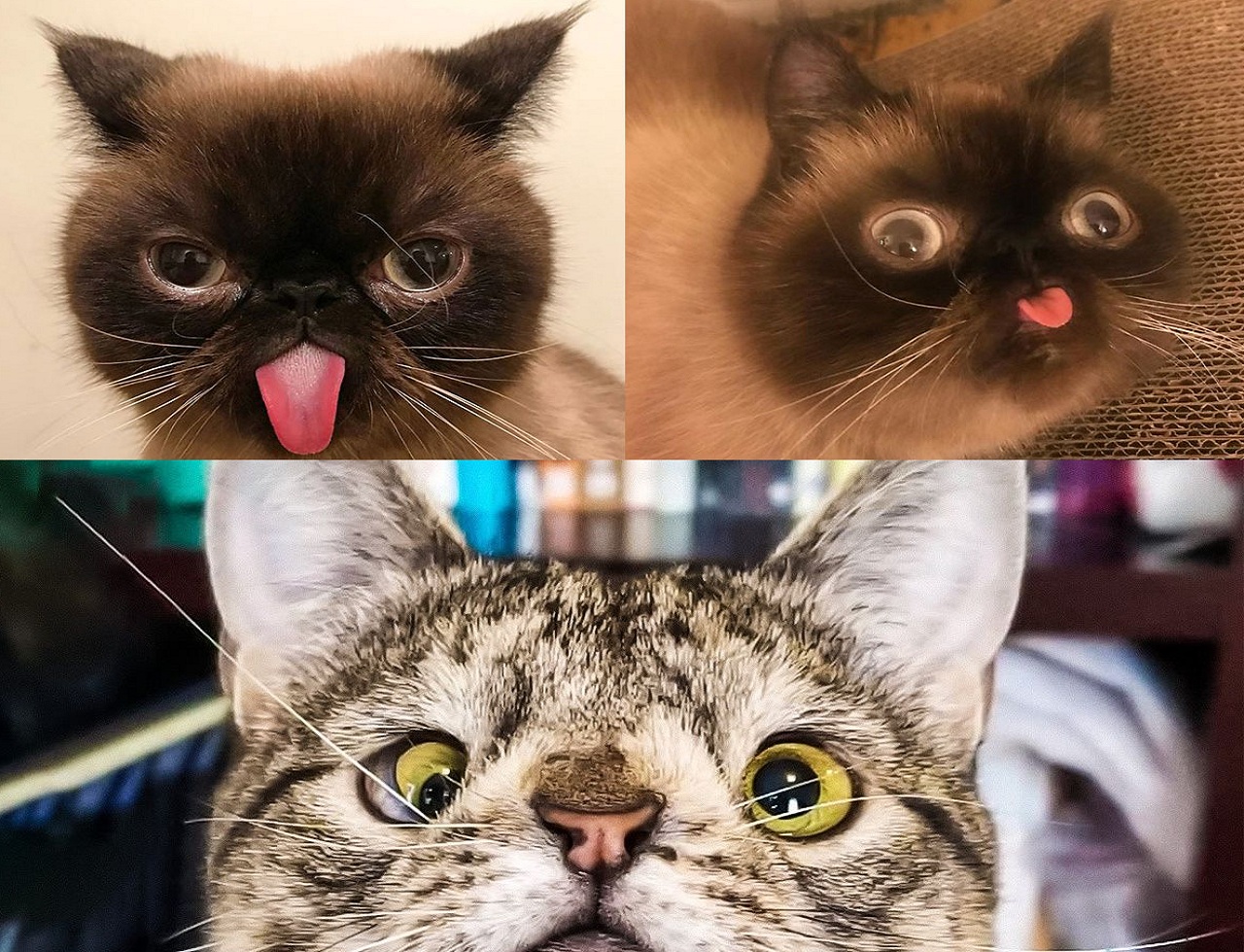Animal Trisomique: The Extraordinary Lives Of Animals With Extra Chromosomes
Have you ever heard about animal trisomique? It’s a fascinating topic that dives into the lives of animals with an extra chromosome. Just like humans, animals can also experience chromosomal abnormalities, and understanding this phenomenon opens up a whole new world of knowledge. In this article, we’ll explore everything you need to know about animal trisomique and the incredible stories behind these unique creatures.
Picture this: a world where animals with trisomy not only survive but sometimes thrive. It’s not just about science; it’s about appreciating the diversity of life in all its forms. Whether you’re a biologist, a pet lover, or simply someone curious about the wonders of nature, this article is for you.
Let’s take a journey into the world of animal trisomique. We’ll uncover the science behind it, the challenges faced by these animals, and the incredible resilience they show. By the end of this article, you’ll have a deeper understanding and appreciation for the complexity of life in the animal kingdom.
- Ximena Saenz Leak The Untold Story Behind The Viral Sensation
- Kyara Marteau Lavail The Untold Story Behind Her Death
What is Animal Trisomique?
Animal trisomique refers to animals that possess an extra chromosome in their genetic makeup. In humans, this condition is commonly known as trisomy, where an individual has three copies of a particular chromosome instead of the usual two. Similarly, in animals, trisomy can occur, leading to unique physical and behavioral traits.
This phenomenon is not limited to one species. From cats and dogs to mice and even fish, trisomy can manifest in various ways. The effects can range from mild to severe, depending on which chromosome is affected and the species involved. Understanding animal trisomique helps us appreciate the genetic diversity within the animal kingdom.
How Does Trisomy Occur in Animals?
Trisomy occurs due to errors during cell division, specifically during meiosis or mitosis. These errors result in an extra chromosome being passed on to the offspring. While trisomy is more commonly studied in humans, its occurrence in animals provides valuable insights into genetics and evolution.
- Celia Ricci Nude A Closer Look At The Misunderstood Headlines
- Candy Love Face The Sweetest Phenomenon Taking Over The World
Scientists have observed trisomy in several animal species, including mammals, birds, and even insects. Each species may exhibit different symptoms and survival rates, making the study of animal trisomique a complex yet fascinating field of research.
Types of Trisomy in Animals
Trisomy can affect various chromosomes, leading to different conditions. Here are some common types of trisomy observed in animals:
- Trisomy 21: Similar to Down syndrome in humans, animals with trisomy 21 may exhibit developmental delays and distinct physical features.
- Trisomy 18: This condition is often associated with severe health issues and a lower survival rate in animals.
- Trisomy X: Observed in some mammals, this condition involves an extra X chromosome and can lead to reproductive challenges.
Each type of trisomy presents its own set of challenges and opportunities for scientific exploration. By studying these conditions, researchers can gain a better understanding of genetic disorders and develop potential treatments.
Challenges Faced by Animals with Trisomique
Animals with trisomique face numerous challenges in their daily lives. These challenges can include:
- Physical deformities that affect mobility and functionality.
- Developmental delays that impact growth and learning.
- Increased vulnerability to diseases and health issues.
Despite these challenges, many animals with trisomique show remarkable resilience and adaptability. Their ability to overcome obstacles provides valuable lessons about the strength of life in the face of adversity.
Survival Rates and Adaptation
Survival rates for animals with trisomique vary depending on the species and the specific chromosome involved. Some animals may have shorter lifespans due to health complications, while others may live relatively normal lives with proper care and support.
Adaptation plays a crucial role in the survival of these animals. Whether it’s learning to navigate their environment despite physical limitations or developing unique social behaviors, animals with trisomique demonstrate the power of adaptation and evolution.
Scientific Research on Animal Trisomique
Research into animal trisomique has made significant strides in recent years. Scientists are using advanced genetic technologies to study the effects of trisomy on different species. This research not only helps us understand animal trisomique but also provides insights into human genetic disorders.
Studies have shown that certain species, such as mice and fruit flies, are particularly useful models for studying trisomy. These animals share many genetic similarities with humans, making them ideal for research purposes. By examining the effects of trisomy in these species, scientists can develop treatments and therapies that may one day benefit both animals and humans.
Breakthroughs in Genetic Research
Recent breakthroughs in genetic research have shed new light on the mechanisms behind trisomy. Researchers have identified specific genes and pathways that contribute to the development of trisomy-related conditions. This knowledge is paving the way for innovative treatments and interventions.
For example, gene editing technologies like CRISPR are being explored as potential tools for correcting genetic abnormalities in animals with trisomique. While still in the experimental stage, these technologies hold great promise for improving the quality of life for affected animals.
Animal Trisomique in the Wild
In the wild, animals with trisomique face additional challenges beyond those in controlled environments. Predation, competition for resources, and harsh environmental conditions can make survival even more difficult. However, some animals have been observed thriving despite these challenges.
Conservation efforts are increasingly focusing on protecting animals with genetic abnormalities, recognizing their importance in maintaining biodiversity. By studying these animals in their natural habitats, scientists can gain a better understanding of how genetic diversity contributes to the resilience of ecosystems.
Case Studies of Wild Animals with Trisomique
Several case studies highlight the incredible stories of wild animals with trisomique. For example, researchers have documented a population of wild mice with trisomy 16, which exhibits unique social behaviors and survival strategies. Similarly, a study on fish with trisomy revealed adaptations that allow them to thrive in competitive aquatic environments.
These case studies demonstrate the importance of studying animal trisomique in the wild. They provide valuable insights into the adaptability and resilience of life in the face of genetic challenges.
Animal Trisomique and Human Connections
The study of animal trisomique has important implications for human health. By understanding the genetic mechanisms behind trisomy in animals, researchers can develop treatments and therapies that may benefit humans with similar conditions. This connection highlights the importance of interdisciplinary research and collaboration between scientists studying both animal and human genetics.
Furthermore, the emotional connection between humans and animals with trisomique can inspire empathy and understanding. Many people find solace and inspiration in the stories of animals overcoming adversity, reinforcing the bond between humans and the natural world.
Therapeutic Applications
Therapeutic applications of animal trisomique research are already showing promise. For example, studies on mice with trisomy have led to the development of new drugs for treating Down syndrome in humans. These advancements underscore the importance of continuing research into animal trisomique and its potential benefits for both animals and humans.
Conservation and Ethical Considerations
Conservation efforts for animals with trisomique must balance scientific research with ethical considerations. While studying these animals can provide valuable insights, it’s important to ensure their welfare and protect their natural habitats. Ethical guidelines should be established to guide researchers and conservationists in their work.
Public awareness and education also play a crucial role in promoting the conservation of animals with trisomique. By raising awareness about the importance of genetic diversity, we can inspire individuals and communities to support conservation efforts and protect these unique creatures.
Future Directions
The future of animal trisomique research looks promising. Advances in genetic technologies and increased public interest in biodiversity conservation are driving new discoveries and innovations. As we continue to learn more about animal trisomique, we can develop better strategies for protecting these animals and preserving the genetic diversity of the animal kingdom.
Conclusion
In conclusion, animal trisomique is a fascinating and important area of study that offers valuable insights into genetics, evolution, and biodiversity. By understanding the challenges and resilience of animals with trisomique, we can gain a deeper appreciation for the complexity and diversity of life. Whether you’re a scientist, a conservationist, or simply someone curious about the natural world, the study of animal trisomique has something to offer everyone.
We invite you to share your thoughts and experiences in the comments below. Do you know of any animals with trisomique? Have you encountered any inspiring stories of animals overcoming adversity? Let’s continue the conversation and learn from each other. And don’t forget to explore our other articles for more fascinating insights into the animal kingdom!
Table of Contents
- What is Animal Trisomique?
- Types of Trisomy in Animals
- Challenges Faced by Animals with Trisomique
- Scientific Research on Animal Trisomique
- Animal Trisomique in the Wild
- Animal Trisomique and Human Connections
- Conservation and Ethical Considerations



Detail Author:
- Name : Miss Lizzie Hessel
- Username : wtorphy
- Email : skoch@hotmail.com
- Birthdate : 1987-09-29
- Address : 646 Freeda Centers West Ricardofurt, IL 93752
- Phone : (828) 351-3266
- Company : Schumm PLC
- Job : Job Printer
- Bio : Nisi incidunt animi laudantium vero sapiente iusto. Officia et debitis voluptatem iure. Atque delectus iste in quia ut et assumenda.
Socials
twitter:
- url : https://twitter.com/hoppes
- username : hoppes
- bio : Consequatur et voluptates eius non autem. Tempore cum qui et occaecati ut aut quod. Voluptates veniam aut officia quia.
- followers : 1604
- following : 2910
tiktok:
- url : https://tiktok.com/@skye3904
- username : skye3904
- bio : Doloremque minus distinctio sint repellat. Aut quia tempore quasi.
- followers : 1264
- following : 42